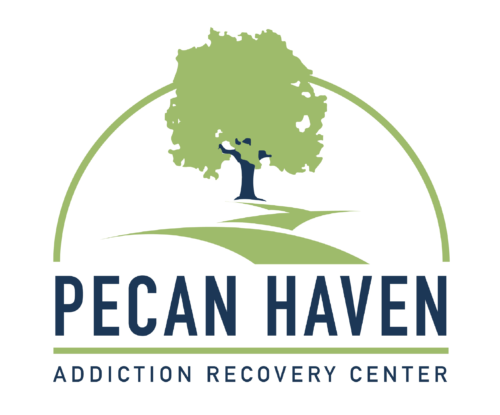Struggling to stay sober after treatment? You are not alone – and the solution may lie in a strong addiction aftercare plan. While detox and rehab are essential first steps, long-term success depends on what happens afterward. Addiction aftercare offers continued support, accountability, and structure during the critical months and years following initial treatment. In this blog, we explore why aftercare matters and how it can significantly reduce the risk of relapse.
What is Addiction Aftercare?
Addiction aftercare refers to the continued support and treatment individuals receive after completing a primary addiction recovery program. This phase may include outpatient therapy, sober living arrangements, peer support groups, medical check-ins, and more. Aftercare is designed to help clients transition from intensive rehab to everyday life while reinforcing the coping tools, routines, and relapse prevention strategies they have developed during treatment.
As its core, addiction aftercare reinforces the hard-earned progress made during inpatient or outpatient treatment. It addresses the psychological, behavioral, and social challenges that can surface once a person leaves the structured setting of rehab. Without aftercare, the risk of slipping back into unhealthy patterns significantly increases. That is why leading recovery programs emphasize its importance as part of a comprehensive, long-term plan.
Why Is Aftercare So Important for Long-Term Recovery?
Research shows that relapse is most likely to occur within the first year after treatment. Addiction aftercare bridges the gap between formal treatment and independent living, helping individuals maintain sobriety during this critical window. Without aftercare, people may return to high-risk environments or face unanticipated triggers without support.
Aftercare reinforces accountability, supports mental health, and promotes stability in employment, relationships, and self-care. It acts as a safety net, allowing individuals to navigate life’s challenges with professional guidance and community support, increasing their chances of sustained recovery.
Common Components of Addiction Aftercare
Aftercare is not a one-size-fits-all solution. The best programs offer a combination of services tailored to each person’s needs. Here are some key components:
- Outpatient Therapy: Weekly or bi-weekly counseling sessions allow individuals to process challenges, trauma, or setbacks in a safe space.
- Sober Living Homes: These structured living environments promote sobriety while easing the transition back into society.
- Support Groups: Programs like Alcoholics Anonymous (AA) or Narcotics Anonymous (NA) offer peer-led guidance and a sense of community.
- Case Management: Aftercare may include regular check-ins with a recovery coach or case manager to help monitor progress and coordinate care.
- Medication Management: For individuals on medication-assisted treatment (MAT), ongoing medical oversight ensures the treatment remains effective and safe.
Other helpful services may include vocational training, financial counseling, and educational workshops. These tools help individuals rebuild life skills that may have been affected during active addiction. Involvement in holistic therapies, such as yoga, meditation, or art therapy, can also support emotional healing and reduce stress. The more personalized and well-rounded the aftercare program, the greater the chance of lasting recovery.
Personal Accountability and Community Support
One of the greatest benefits of addiction aftercare is the structure it brings. Regular therapy sessions, group meetings, and follow-ups create a safety net that keeps individuals engaged in their recovery.
Community support also plays a major role. Isolation is a common trigger for relapse, but participating in group-based aftercare connects people with others who understand their experience. This shard connection fosters motivation and resilience, offering a sense of belonging during what can otherwise be a lonely process.
Mental Health and Dual Diagnosis in Aftercare
Many people who struggle with addiction also face co-occurring mental health conditions such as depression, anxiety, or PTSD. Aftercare programs that include dual diagnosis treatment ensure these issues are addressed long-term.
Continued therapy and medication management help individuals remain stable emotionally and mentally, which directly supports sobriety. Without addressing mental health, recovery efforts can become significantly more difficult and less sustainable.
How Long Does Addiction Aftercare Last?
The length of an aftercare plan varies depending on individual needs and progres. Some clients participate in aftercare for a few months, while others remain involved for several years. Many professionals recommend at least 12 months of structured aftercare, with gradually reduced intensity over time.
Flexibility is key – aftercare should adjust as a person’s recovery evolves. Regular assessments help determine when it is appropriate to reduce or modify the level of support.
Can Aftercare Prevent Relapse?
While no program can guarantee complete relapse prevention, addiction aftercare significantly reduces the risk. It equips individuals with the tools to recognize and respond to cravings or stress in healthy ways. In addition, regular monitoring and support make it easier to detect early warning signs and intervene before relapse occurs.
Ongoing involvement in recovery-focused activities also keeps individuals accountable to themselves and their support network.
The Role of Family in Aftercare
Families play a vital role in successful recovery, and many aftercare programs include family counseling or education. This helps rebuild trust, improve communication, and ensure that loved ones understand how to support the person in recovery.
Family support is most effective when loved ones are educated about addiction and recovery. Many aftercare programs host workshops that teach family members about boundaries, enabling behaviors, and communication skills. These sessions often help reduce shame and blame while building a stronger, more unified home environment. A well-informed family becomes a powerful ally in the recovery journey.
Building a Life Beyond Addiction
Addiction aftercare encourages clients to focus on creating a meaningful, substance-free life. This includes building healthy relationships, developing new hobbies, pursuing education or employment, and setting long-term goals.
By supporting personal growth and purpose, aftercare nurtures long-lasting recovery. Life beyond addiction becomes not only manageable but deeply fulfilling.
Contact Pecan Haven Today
Recovery doesn’t end when treatment does – it evolves. Addiction aftercare is the bridge between treatment and long-term success, providing the structure, support, and stability that individuals need to stay sober and thrive. If you or someone you love is completing treatment, now is the time to plan for aftercare.
Pecan Haven Addiction Recovery Center, located in Monroe, Louisiana, offers a full continuum of care, including residential programs, intensive outpatient treatment, dual diagnosis services, and comprehensive residual detox. Our compassionate team provides personalized aftercare planning to ensure that each client leaves treatment with a clear path forward.
Call us today at (318) 600-3333 to learn more about how our aftercare programs can help support a lifetime of recovery.

